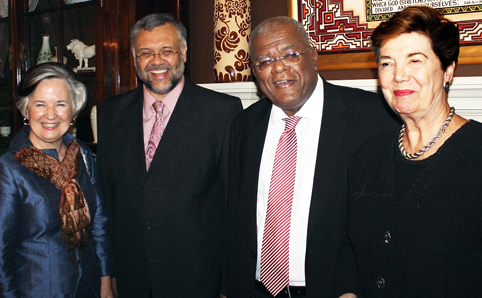Latest News Archive
Please select Category, Year, and then Month to display items
12 October 2020
|
Story Arina Engelbrecht
|
Photo Supplied
 Arina Engelbrecht from Organisational Development and Employee Well-being believes physical activity has a number of benefits for one’s health, including stress relief.
Arina Engelbrecht from Organisational Development and Employee Well-being believes physical activity has a number of benefits for one’s health, including stress relief.
Being physically active plays a big role in preventing the development of mental-health problems and in improving the quality of life of people experiencing mental-health problems.
Treatment for depression
Physical activity can be an alternative treatment for depression. It can be used as a stand-alone treatment or in combination with medication and/or psychological therapy. It promotes all kinds of changes in the brain, including neural growth, reduced inflammation, and new activity patterns are formed that promote feelings of calm and well-being. It releases endorphins – powerful chemicals in the brain that energise your spirit and make you feel good.
Physical activity can be very effective in relieving stress. Research in adults has found that physically active individuals tend to have lower stress levels compared to individuals who are less active. It also leads to improved sleep. When a person sleeps better and feels more rested, overall quality of life improves. They cope better with daily life stressors.
Reduce Alzheimer's risk
Regular physical activity can reduce your risk of developing Alzheimer's disease by up to 50%. It can also slow down further deterioration in those who have already started to develop cognitive problems. It stimulates the brain’s ability to maintain old connections as well as to make new ones.
A study asked people to rate their mood immediately after periods of physical activity (e.g. going for a walk/run, cycling, doing housework) and periods of inactivity (e.g. reading a book or watching television). Researchers found that participants felt more content, more awake, and calmer after being physically active compared to after periods of inactivity.
In conclusion, people who are physically active feel a sense of well-being, feel more energetic throughout the day, sleep better at night, have sharper memories, and feel more relaxed and positive about themselves and their lives.
“Being physically active not only changes your body, it changes your mind,
attitude, and your mood.” – Arina Engelbrecht
Rasool lauds our university
2011-10-24
 |
| At the dinner at the residence of the South African Ambassador to the USA, Mr Ebrahim Rasool, were, from the left: Prof. Debra Stewart, President of the Council of Graduate Schools in the USA; South African Ambassador, Mr Rasool; Prof. Jansen; and Prof. Molly Corbett Broad, President of the American Council on Education (ACE). |
The Ambassador for South Africa to the United States of America (USA), Mr Ebrahim Rasool, recently hosted Prof. Jonathan Jansen, Vice-Chancellor and Rector of our university and a group of representatives from major science councils, foundations and universities at his home in Washington DC. Our university is the first South African university to be hosted at the official home of the Ambassador.
“The University of the Free State has shown South Africa and the world how to work with the past and how to make the past work for them. “You are a thought leader who had the privilege not to be comfortable with your own ideas of history; you understood the need to change and embraced it. You have moved the fastest towards racial and human togetherness of all the South African universities,” Mr Rasool said.
Prof. Jansen responded by saying that Africa needed strong academic universities and that had to be the focus of tertiary institutions across the continent. “We must create opportunities for people to be together and to learn from each other. The UFS is an experiment of human togetherness – and this experiment is taking off,” he said.
During his visit to the USA, Prof. Jansen also discussed research partnerships and new placements for UFS staff and students through exchange visits.